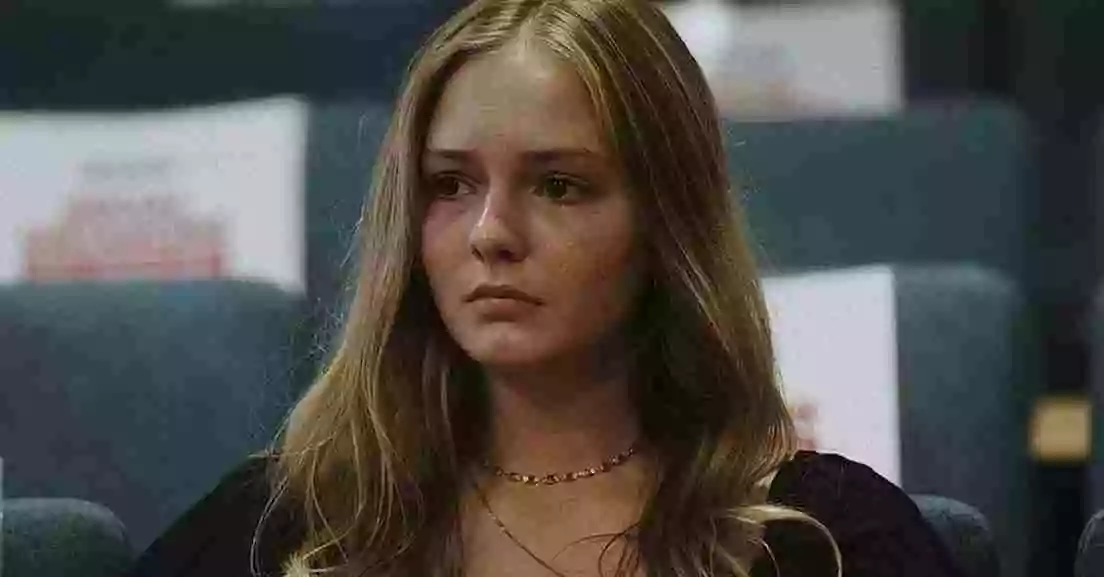We seeing, Lot of People searching about Maya Kowalski and her story. Let us begin to know Maya Kowalski Wikipedia details and Story and much more information about Maya Kowalski. Beata and Jack Kowalski started the battle of their life in Venice, Florida in 2016. Maya Kowalski was given a rare diagnosis in 2015, when she was in excruciating agony, hardly able to walk, and rapidly losing her condition.
Nata became well for a year after receiving extensive therapy in Mexico. Beata and Jack are instructed to leave Maya’s side during a 2016 relapse after a 10-minute consultation with a child abuse doctor who never identified herself as such. The claim is Munchausen syndrome by proxy or medical child abuse.

So Come below read information about Maya Kowalski Wikipedia, and also Story, Age, Florida and many more.
Maya Kowalski Age
Maya Kowalski was born in Elmhurst, Illinois, on December 10, 2005. July 2015: Maya, who according to 2023 would be about 17 years old, has a severe asthma episode and is hospitalized at Johns Hopkins All Children’s Hospital.
Maya Kowalski Story
People’s hearts were touched by the story of Maya Kowalski all across the world. Her battle with a number of unusual ailments, including intense pain all over her body, took a horrible turn last year when her mother was incorrectly found guilty of Munchausen syndrome by proxy (MSP) by the hospital. As a result of this terrible occurrence, her mother committed herself.
The new Netflix documentary Take Care of Maya, which will have its global premiere this month at the Tribeca Film Festival and be live on June 19, features 17-year-old Maya bravely recalling her family’s heartbreaking ordeal.
Netflix has so far made available two snippets from the documentary that feature interviews with the main characters.
Maya first started experiencing a variety of illnesses at the age of nine, including asthma episodes, migraines, and sores on her limbs.
Doctors were baffled by her symptoms, and one even suggested that she was dreaming them.
Maya’s mother, Beata, discovered something important about her daughter’s health: Maya was battling a rare neurological illness called complex regional pain syndrome (CRPS).
Pain in the limbs, especially the arms and legs, either persists or flares up periodically as a symptom of this illness. In addition to having extreme sensitivity to touch, people with CRPS also suffer from acute agony.
She received a formal diagnosis of CRPS from Tampa-based anesthesiologist and pharmacologist Dr. Anthony Kirkpatrick in 2015.
The family first had some comfort from Dr. Kirkpatrick’s therapies, which included ketamine infusions, including “ketamine comas” that lasted for five days.
She experienced a brief reprieve from her discomfort thanks to these therapies. But their optimism was short-lived. Maya was admitted to Johns Hopkins the next year with significant abdominal discomfort.
Beata begged the staff to give her daughter ketamine out of her desperation to end her daughter’s misery. However, this request caused some worry, therefore Florida’s child protection services (CPS) were notified.
After opening an inquiry and charging Beata with Munchausen syndrome by proxy, Maya was taken from her parents and placed in state custody for a gruelling three months.
A court-ordered psychiatric assessment eventually indicated that Beata did not genuinely have MSP, but that her condition had gotten worse as a result of her separation from Maya.
She scarcely ate and remained up late researching. She was devastated when a judge even prevented her from hugging her kid, which was a tragic turn of events.
At the age of 43, Beata sadly committed suicide after spending 87 agonising days apart. She emphasized her sadness and agony at being separated from Maya and treated like a criminal in an email that was found after her death.
She could not stand to see her daughter degrade more while in agony. Five days after the unfortunate death of Beata, Maya was given into her father’s custody and sent back to her home in Venice, Florida.
More than six years after Beata’s passing, the Kowalski family filed a lawsuit against Johns Hopkins, and the trial is scheduled to start in September.
The narrative of the Kowalski family is one of great suffering and sorrow. Beata, a devoted mother and licensed nurse, worked nonstop to protect her daughter’s welfare, only to encounter unfounded charges and the tragic events that followed.
Maya’s bravery in telling her experience brings attention to the dire consequences of false allegations and the requirement for justice. The Kowalski family wants to hold the system accountable and bring attention to its inadequacies as the trial date draws near.
Maya’s tale serves as a reminder of the value of empathy, comprehension, and fact-based judgment in situations impacting the welfare of children. It is a stunning illustration of the tenacity of those who face unfathomable adversity and the power of the human spirit.
Also Read
